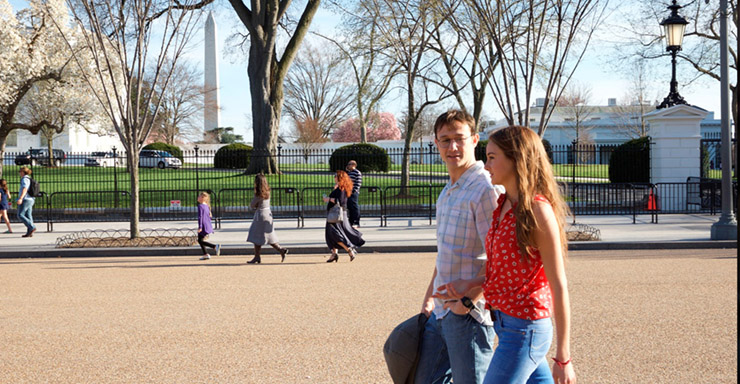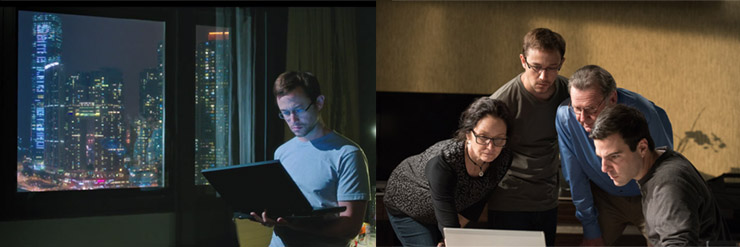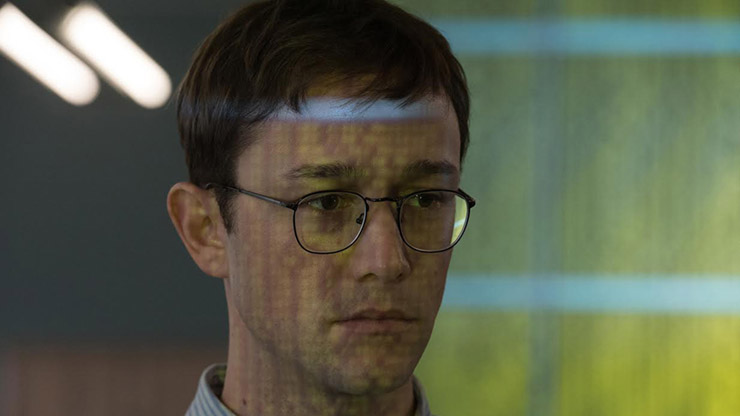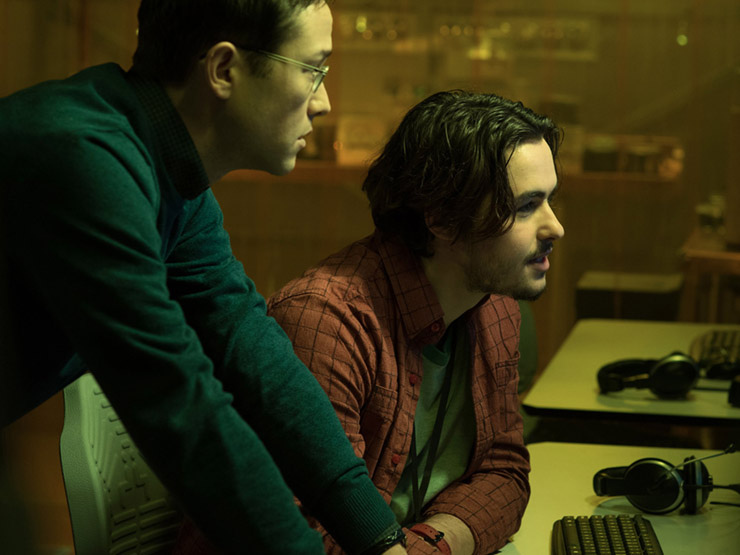
“Snowden,” Oliver Stone's take on the computer nerd-turned-government whistleblower, unfolds with straightforward poise. It's a conventional character study about an extraordinary subject, crafted by a filmmaker who used to test the boundaries of the medium and took pleasure in pushing viewers' buttons. It's a polished effort noticeably devoid of the anger that used to propel Stone's more aesthetically bold work of the late 80s and 90s.
And you know what? That's OK.
Because “Snowden,” starring a pitch-perfect Joseph Gordon-Levitt in the title role, shows the Oscar-winning auteur in disarmingly unruffled mode. No longer out to get a rise out of you, Stone is fixing his probing gaze on the next generation of rabble-rousers. Those precocious whippersnappers intent on making a difference the way he once tried to. If anything, this cautionary tale, anchored by a tender love story, is a meditation on mentorship, and its intrinsic positivity rises above the film's more clunky elements.

Perhaps the weakest part of this Open Road Films release is the framing device to which Stone and co-screenwriter Kieran Fitzgerald keep returning. “Snowden” kicks off in Hong Kong, where documentary filmmaker Laura Poitras (Melissa Leo), accompanied by Guardian reporter Glenn Greenwald (Zachary Quinto, pretty much wasted here), first meet Edward Snowden. Once they're inside his hotel room, it's clear Stone aims to convey the pervasive sense of paranoia Poitras went on to capture so vividly in her Snowden doc “Citizenfour.” Are they really safe from Big Brother's prying eyes? For all they know, the long arm of the law could already be onto this pale-skinned geek, eager to retrieve that classified info he pilfered from the NSA. But these scenes, for the most part, lack the desired urgency. The trio, which becomes a quartet when Guardian correspondent Ewen MacAskill (Tom Wilkinson, trying on a Scottish accent) joins in, might as well be having a sleepover.
Stone, you see, is anxious to get on with it, and he leaves behind the air-conditioned confines of that hotel room, not only to explore how Snowden got into this predicament, but to trace his disenchantment with Uncle Sam. We see the future fugitive as a driven Special Forces candidate for the U.S. Army Reserves, straining his thin physique to the breaking point, literally, in order to keep up with his peers during basic training. A fractured leg dashes those dreams, leading the young idealist to apply to the CIA. A resistance to institutional compliance raises a red flag with his recruiter Corbin O'Brian (Rhys Ifans). It would deem him unsuitable for consideration, he tells Snowden with characteristic candor, but in the aftermath of Sept. 11 and the ongoing invasion of Iraq, the computer whiz's skills are sorely needed, and the powers that be are willing to overlook these tendencies.
What develops between the two men is not the expected adversarial educator-pupil relationship, but an absorbing meeting of minds, and clashing worldviews. (Nicolas Cage, looking like he's having a ball, adds some welcome levity as cryptography professor Hank Forrester, good cop to O'Brian's bad cop.) Snowden aces his assignments, and his accomplishments build up his self-esteem. It doesn't hurt that a budding romance with dancer and acrobat Lindsay Mills (Shailene Woodley) is going well, despite a difference in political leanings. (Mills insists in questioning the status quo, much to her beau's consternation … and amusement.) Stone and Fitzgerald cleverly weave in these conversations as part of their courtship, and we root for them because the movie takes pains to place their emotional journeys above how the trajectory of their relationship dovetails into the actions that turned Snowden into a household name.

“Snowden,” and Gordon-Levitt's Snowden, reach a turning point while the rising star is stationed in Geneva in 2007. That's where hacker extraordinaire Gabriel Sol (Ben Schnetzer) shows him the program that allows the U.S. government to peek into all its citizens' private affairs. “Think of it as a Google search, but instead of searching what they make public, we’re also looking at everything they don’t,” Schnetzer says.
Snowden, played by Gordon-Levitt as a wary introvert with deep-rooted sense of right and wrong, keeps his objections about these practices to himself, even though he still warns his girlfriend not to leave her laptop open, because, you know, they might be watching. In a misconceived, thoroughly unnecessary scene that comes across as more than a little icky, Snowden isn't even able to enjoy intercourse with Mills because he can't stop staring at the computer's camera lens.
There aren't many stylistic flourishes in “Snowden,” very little of the expressionistic editing that's emblematic of Stone's best-known work, even when the action shifts to Hawaii and follows Snowden as he chooses to take matters in his own hands to make the NSA's voyeuristic practices public. Craig Armstrong's engulfing orchestral score, for instance, even has shades of Aaron Copland. While devotees of films like “JFK” and “Natural Born Killers” might feel let down by the sedate mise en scene, the director's work here is certainly a marked improvement over, say, the lackluster “Wall Street: Money Never Sleeps.” Stone is far better off trying his hand at pulling off an NSA surveillance montage than resurrecting Gordon Gekko, even if the results show he's a little rusty. (To be fair, at 134 minutes, the film still glides by.)

Whereas Stone gave the impression he was using cinema to vent his frustrations in prior decades, parts of “Snowden” feel like he's having a more measured discussion with the viewer, as if he were weighing the pros of freedom versus security over coffee. His latest effort shows he remains, at heart, a classicist, a natural born storyteller aiming to entertain as well as enlighten.
He's also using our recent past to glimpse into the future. The film ends with a brief appearance by Snowden himself, and seeing the real McCoy not only underscores the caliber of Gordon-Levitt's performance. It also represents a changing of the guard, the passing of the torch from one generation of truth-tellers to another. “It's up to the Edward Snowdens of this world to stay vigilant,” he seems to be saying to complacent Millennials. This time, however, he shows he doesn't have to scream to get his point across.




